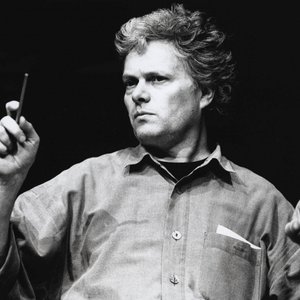Biography
-
Born
14 March 1952
-
Born In
Bern, Bern, Switzerland
-
Died
14 August 2007 (aged 55)
Swiss composer (1952-2007).
http://www.heinzreber.net
Heinz Reber’s premature death in 2007 left a musical gap that is never likely to be filled. The Swiss composer didn’t so much chart new paths as abandon the idea of paths altogether. In their place, he enacted an idiosyncratic (yet unusually selfless) comportment of sound in which bodies, voices, and instruments came to describe their own conditions without academic partitions. All of which makes MA – Two Songs all the more remarkable. In its contradictory impulses, one finds auditory portraits of the Second Viennese School (think Arnold Schönberg, Alban Berg, and Anton Webern) and its tonal expansions, as well as, in the words of one press statement, the “relationship of Asiatic singers to the Romantic song tradition.” Although a fascinating album in its own right, as Reber’s projects usually are, this one bids our total attention in order to appreciate not only its texts and their conceptual milieu, but also the brittle agency of its voices, which breathe with all the beauty of a slow-motion breakdown.
“School of Vienna” lives in the depths of a piano, beyond which we hear only the acrobatic soprano of Kimiko Hagiwara. Her tender blend of forced vulnerability and highly trained exposition make for an especially balanced piece, one that both reifies and breaks everything a prototypical Lied should be. This 20-minute diatribe thus becomes an eloquent statement of its own incremental demise. The high note functions here neither as a point of resolution or fulfillment of expectation, nor as the promissory engagement with the listener through the articulation of a lyrical ploy. Rather, it secures the act of singing into place, each piercing vibrato a lynchpin of a broader vocal image. The language is soft to the aural touch, cautious in its extemporization, playing out the ruse of development with a secretly romantic pleasure before being washed out to sea in a robust waver. “School of Athens – School of Noh” drips upward from finger-dampened strings as baritone Dohyung Kim vocalizes the dramaturgy of Antigone alongside an aphasic Hagiwara. The latter reveals herself in fully sung sentences only in the second half, in which she is foregrounded. All the while, Junko Kuribayashi’s pianistic puffs of air act as pre-commentary to the text, opining on every secretive occasion before it is uttered.
As with the equally visceral Mnaomai, Mnomai, there has been a slippage of interpretation I feel I must address. In his liner notes, Hans-Klaus Jungheinrich notes that the “MA” (intermediate space) of the album’s title is a Japanese ideogram combining the characters for “door” (門) and “moonlight” (月) when in fact the calligraphed Kanji in question is made up of the characters for “door” (門) and “sun” (日), which combine to form: 間. While historically, “sun” could have been replaced with “moon” without any change in meaning, nowadays one will likely only see it as it is portrayed on the cover. A subtle error, to be sure, but one that misrepresents a language that is so often prone to a curious overlay of mystique. I point this out only to clarify the music’s underlying structure, as I personally fail to see the “sublime appeal of alienation” that is supposedly inculcated in these pieces. In a musical context at least, I don’t believe this is what MA is all about. To be alienated, especially at one’s own will, is to consciously set up a parallel space to the one being rejected, which is equally viable in its own nothingness. At any rate, Jungheinrich offers poignant insight when he notes the significance of Reber’s overt challenge in “a time of renascent xenophobia.” The combinations inherent in these pieces are unsettling in the present climate, for they posit music both as an act above the confines of the nation-state and one that highlights its own rootedness in land and ideology. As a historical document, music is already archival the moment it is rendered.
ECM - Records, Manfred Eicher
Artist descriptions on Last.fm are editable by everyone. Feel free to contribute!
All user-contributed text on this page is available under the Creative Commons Attribution-ShareAlike License; additional terms may apply.












